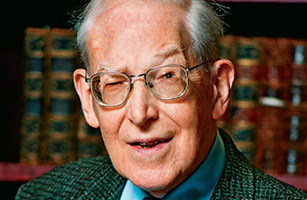
Theological Traffic Cop
When it comes to doctrine, Evangelicals practice the equivalent of states' rights. Encompassing huge, philosophically distinct denominations like the Southern Baptist Convention, the Pentecostal Assemblies of God and thousands of independent "Bible churches," the movement has no formal arbiter. Nonetheless, J.I. Packer, 78, an Oxford-trained theologian, claimed the role informally with his 1973 book, Knowing God, which outlined a conservative Christian theology deeper and more embracing than many Americans had encountered. It did real justice to hard topics such as suffering and grace. And, says Michael Cromartie of the Ethics and Public Policy Center, a Washington think tank, "conservative Methodists and Presbyterians and Baptists could all look at it and say, 'This sums it all up for us.'"
That appeal led to Packer's current role as a doctrinal Solomon whose pronouncements as executive editor at the magazine Christianity Today exert influence beyond its 340,000 readers. Mediating debates on everything from a particular Bible translation to the acceptability of free-flowing Pentecostal spirituality, Packer helps unify a community that could easily fall victim to its internal tensions.